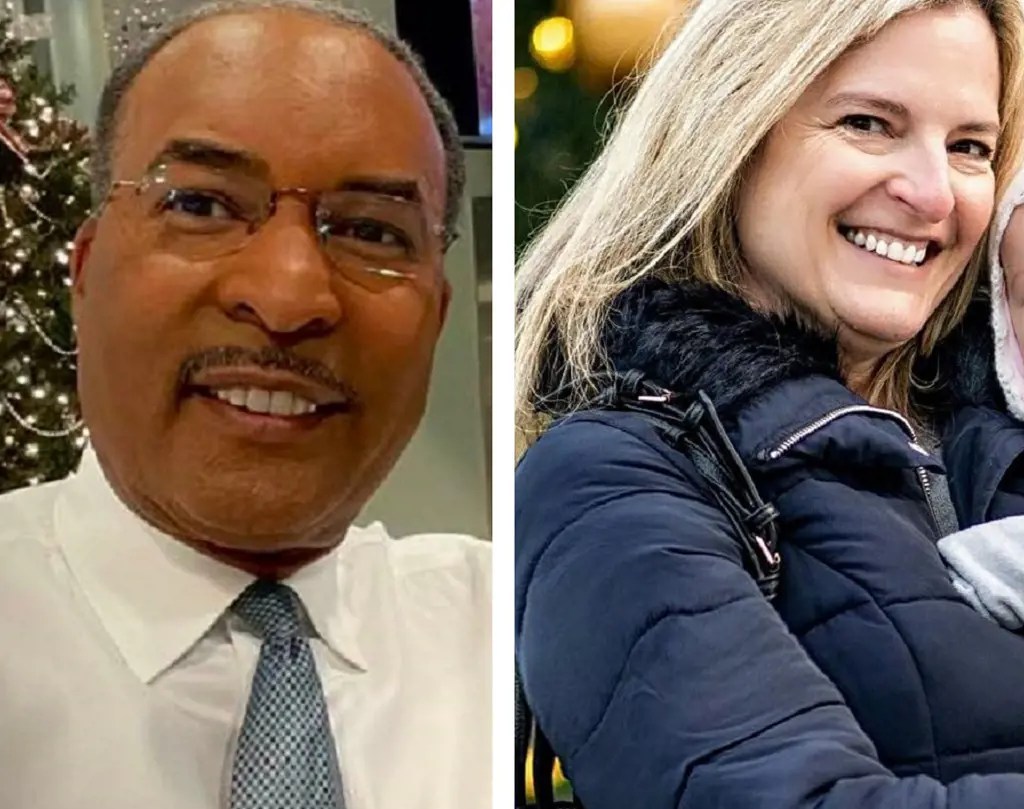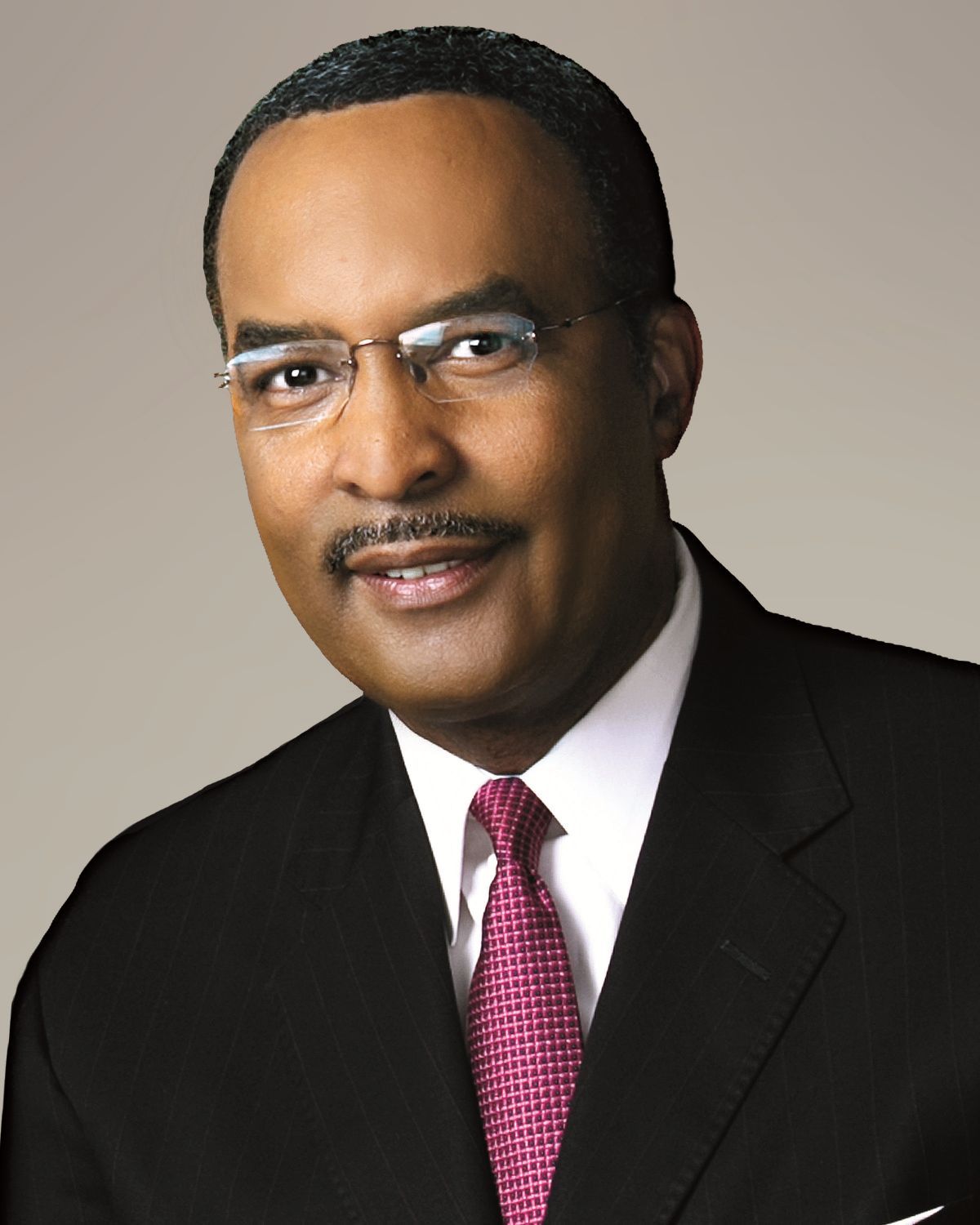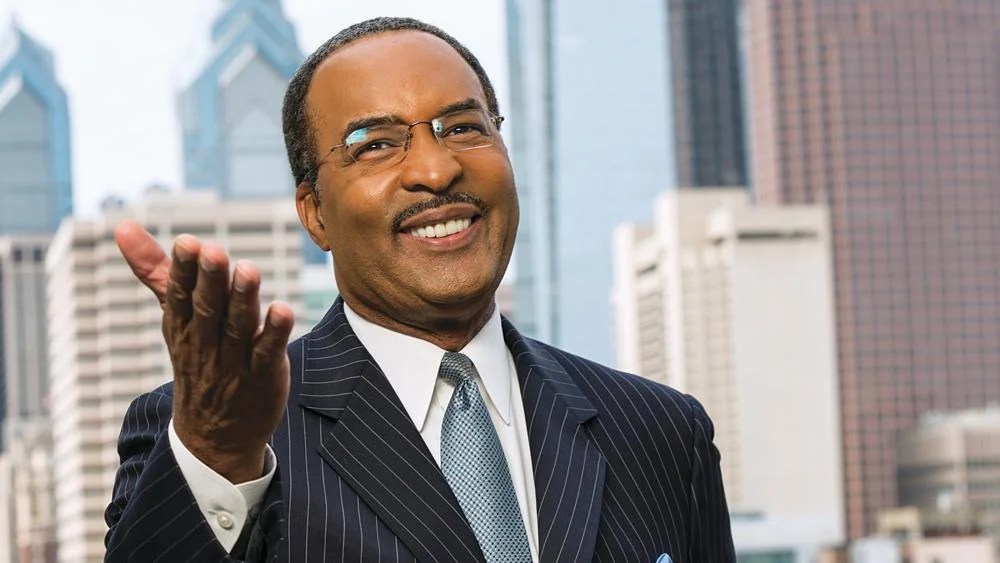Unveiling The Reasons Behind Bars
Ukee Washington Married Life Behind Bars Why refers to the highly publicized marriage of Ukee Washington, a convicted murderer serving a life sentence in prison, to Kelli Washington, a free woman.
The case has sparked widespread debate about the ethics and implications of conjugal visits and prison weddings. Some argue that prisoners should not be allowed to have such privileges, while others maintain that it is a basic human right. The issue has also raised questions about the long-term effects of incarceration on relationships and families.
The first known prison wedding in the United States occurred in 1974. Since then, there have been thousands of such marriages. However, the debate over the issue continues.
Ukee Washington Married Life Behind Bars Why
The case of Ukee Washington's marriage while serving a life sentence in prison has raised important questions about the ethics and implications of conjugal visits and prison weddings. Some of the key aspects to consider include:
- Prisoner rights
- Family relationships
- Public safety
- Cost to taxpayers
- Emotional toll on prisoners
- Impact on rehabilitation
- Religious freedom
- Public opinion
- Legal precedent
- Long-term consequences
These aspects are all interconnected and must be carefully considered when making decisions about conjugal visits and prison weddings. For example, while prisoners have a right to family relationships, the public's safety must also be taken into account. Similarly, the cost to taxpayers must be weighed against the potential benefits of allowing conjugal visits. Ultimately, the decision of whether or not to allow conjugal visits and prison weddings is a complex one that must be made on a case-by-case basis.
Ukee Washington was convicted of murder in 1985 and sentenced to life in prison. In 2002, he married Kelli Washington, a free woman. The couple has two children together.
Prisoner rights
Prisoner rights are the legal rights of people who are incarcerated. These rights include the right to due process, the right to be free from cruel and unusual punishment, and the right to access to the courts. Prisoner rights are important because they help to ensure that prisoners are treated fairly and humanely.
The case of Ukee Washington highlights the importance of prisoner rights. Washington was convicted of murder in 1985 and sentenced to life in prison. In 2002, he married Kelli Washington, a free woman. The couple has two children together. Washington's marriage would not have been possible without the legal right to marry while incarcerated.
Prisoner rights are a critical component of a just and humane society. They help to ensure that prisoners are treated fairly and with respect, and that they have the opportunity to rehabilitate themselves and reintegrate into society.
Family relationships
Family relationships are an important part of human life. They provide us with love, support, and a sense of belonging. For prisoners, family relationships can be a lifeline to the outside world. They can help prisoners to maintain their sanity, stay connected to their loved ones, and prepare for their eventual release.
The case of Ukee Washington highlights the importance of family relationships for prisoners. Washington was convicted of murder in 1985 and sentenced to life in prison. In 2002, he married Kelli Washington, a free woman. The couple has two children together. Washington's marriage would not have been possible without the support of his family. His wife and children have been a source of strength and hope for him during his time in prison.
Family relationships can also be a source of support for the families of prisoners. When a loved one is incarcerated, it can be difficult to know how to help. Family members may feel isolated and alone. However, there are many ways that families can stay connected to their loved ones in prison. They can write letters, visit, and participate in prison programs. Family relationships can help to keep prisoners connected to the outside world and can make the transition back to society after release easier.
The importance of family relationships for prisoners cannot be overstated. Family relationships can provide prisoners with love, support, and hope. They can also help prisoners to maintain their sanity, stay connected to the outside world, and prepare for their eventual release.
Public safety
Public safety is a critical component of any society. It refers to the measures taken to protect the public from harm, including crime, violence, and other threats. In the case of Ukee Washington, public safety is a major concern. Washington is a convicted murderer serving a life sentence in prison. His marriage to Kelli Washington, a free woman, has raised questions about the potential risks to public safety.
One of the main concerns about conjugal visits and prison weddings is that they could lead to increased crime. Critics argue that prisoners who are allowed to have conjugal visits are more likely to engage in criminal activity upon their release. They also argue that prison weddings could provide a cover for prisoners to escape or smuggle contraband into prison.
However, there is no clear evidence to support these claims. In fact, some studies have shown that conjugal visits can actually reduce recidivism rates. Additionally, there are a number of security measures in place to prevent prisoners from escaping or smuggling contraband during conjugal visits. For example, prisoners are typically searched before and after visits, and visits are closely monitored by prison staff.
Ultimately, the decision of whether or not to allow conjugal visits and prison weddings is a complex one that must be made on a case-by-case basis. Public safety is a critical concern, but it must be weighed against other factors, such as the rights of prisoners and the potential benefits of allowing conjugal visits.
Cost to taxpayers
The case of Ukee Washington's marriage while serving a life sentence in prison has raised questions about the cost to taxpayers. Some of the key aspects to consider include:
- Security costs
The cost of providing security for conjugal visits and prison weddings can be significant. This includes the cost of hiring additional guards, installing security cameras, and conducting background checks on visitors.
- Medical costs
Prisoners who are allowed to have conjugal visits may be more likely to engage in risky sexual behavior, which could lead to increased healthcare costs. Additionally, the cost of providing prenatal care and childbirth services to female prisoners who become pregnant during conjugal visits can be significant.
- Housing costs
If conjugal visits are allowed, prisons may need to build or renovate housing units to accommodate visiting spouses. This can be a significant expense, especially in states with large prison populations.
- Transportation costs
The cost of transporting prisoners to and from conjugal visits can also be significant, especially if the visits are held at a location that is far from the prison.
The cost to taxpayers of allowing conjugal visits and prison weddings is a complex issue that must be carefully considered. While there are some potential costs to consider, there are also potential benefits, such as the reduced risk of recidivism and the strengthening of family relationships. Ultimately, the decision of whether or not to allow conjugal visits and prison weddings is a decision that must be made on a case-by-case basis.
Emotional toll on prisoners
The emotional toll on prisoners is a significant aspect of the debate surrounding Ukee Washington's marriage while serving a life sentence in prison. Incarceration can have a devastating impact on the emotional well-being of prisoners, leading to a range of mental health problems, including depression, anxiety, and post-traumatic stress disorder (PTSD).
- Isolation and loneliness
Prisoners are often isolated from their families and friends, which can lead to feelings of loneliness and depression. They may also be subjected to violence and abuse from other prisoners, which can further traumatize them.
- Guilt and shame
Prisoners may feel guilty and ashamed about the crimes they have committed, which can lead to low self-esteem and a lack of hope for the future.
- Uncertainty about the future
Prisoners often have no idea when they will be released, which can lead to anxiety and uncertainty about the future. This can make it difficult for them to plan for the future and to maintain hope.
- Loss of identity
Prisoners may lose their sense of identity in prison. They may be stripped of their personal belongings, their freedom, and their ability to make choices. This can lead to a loss of self-esteem and a sense of hopelessness.
The emotional toll on prisoners is a serious problem that can have a lasting impact on their lives. It is important to be aware of the emotional challenges that prisoners face and to provide them with support and resources to help them cope.
Impact on rehabilitation
The impact of marriage on rehabilitation is a complex and multifaceted issue. In the case of Ukee Washington, who married while serving a life sentence in prison, the potential impact on his rehabilitation is a key consideration.
- Strengthened family ties
Marriage can help to strengthen family ties, which can be an important factor in rehabilitation. Family support can provide prisoners with a sense of belonging and purpose, and can help them to maintain hope for the future.
- Improved mental health
Marriage can also lead to improved mental health for prisoners. Studies have shown that married prisoners are less likely to experience depression, anxiety, and other mental health problems. This is likely due to the fact that marriage provides prisoners with a sense of stability and support.
- Reduced recidivism rates
Marriage has also been shown to reduce recidivism rates. Studies have shown that married prisoners are less likely to return to prison after their release. This is likely due to the fact that marriage provides prisoners with a sense of responsibility and accountability.
- Improved social skills
Marriage can also help prisoners to improve their social skills. Through their interactions with their spouse and other family members, prisoners can learn how to communicate more effectively, resolve conflicts peacefully, and build healthy relationships.
Overall, the impact of marriage on rehabilitation is likely to be positive. Marriage can provide prisoners with a sense of stability, support, and purpose, which can help them to improve their mental health, reduce their risk of recidivism, and develop important social skills.
Religious freedom
Religious freedom is a fundamental human right that is protected by the Constitution of the United States. It includes the right to practice one's religion freely, without government interference. Religious freedom is also a critical component of Ukee Washington's marriage while serving a life sentence in prison.
Washington is a Muslim, and his religious beliefs played a role in his decision to marry. He believes that marriage is a sacred institution that is ordained by God. He also believes that it is important to have a family and to raise children in a loving and supportive environment. His wife, Kelli, is also a Muslim, and she shares his religious beliefs.
The couple's marriage has been a source of strength and support for both of them. It has helped them to cope with the challenges of prison life and to maintain their faith. Their marriage has also been a positive influence on other prisoners, who have seen that it is possible to have a happy and fulfilling life even behind bars.
Washington's case highlights the importance of religious freedom for prisoners. Religious freedom allows prisoners to practice their faith freely and to find comfort and support in their religion. It also helps to create a more humane and just prison system.
Public opinion
Public opinion is a crucial factor to consider when discussing Ukee Washington's marriage while serving a life sentence in prison. Public opinion can shape the way that the media portrays the case, the way that the courts handle the case, and the way that the public views prisoners and their rights.
- Media coverage
Public opinion can influence the way that the media covers the case of Ukee Washington's marriage. For example, if public opinion is strongly opposed to conjugal visits for prisoners, the media may be more likely to portray Washington's marriage in a negative light. - Legal proceedings
Public opinion can also influence the way that the courts handle the case of Ukee Washington's marriage. For example, if public opinion is strongly in favor of conjugal visits for prisoners, the courts may be more likely to rule in favor of Washington's request to have conjugal visits. - Public perception of prisoners
Public opinion can also influence the way that the public views prisoners and their rights. For example, if public opinion is strongly against conjugal visits for prisoners, the public may be more likely to view prisoners as dangerous and unworthy of basic human rights. - Public policy
Public opinion can also influence public policy on issues related to prisoners' rights. For example, if public opinion is strongly opposed to conjugal visits for prisoners, it may be more difficult to pass laws that allow for conjugal visits in prisons.
Public opinion is a complex and multifaceted phenomenon, and it can have a significant impact on the way that the criminal justice system operates. It is important to be aware of the role that public opinion plays in cases like Ukee Washington's marriage, and to consider the potential consequences of public opinion on prisoners' rights.
Legal precedent
Legal precedent is a principle or rule established in a previous legal case that is binding on lower courts in subsequent cases involving similar facts and legal issues. It is an important component of the common law system, which is used in most English-speaking countries, including the United States.
In the case of Ukee Washington's marriage while serving a life sentence in prison, legal precedent played a significant role. In 1985, the Supreme Court ruled in Turner v. Safley that the Constitution does not guarantee inmates the right to marry. However, the Court also held that prison officials must have a valid penological reason for denying an inmate's request to marry. This precedent established the legal framework for considering requests for conjugal visits and prison weddings.
In Washington's case, the prison officials denied his request for conjugal visits, arguing that they would pose a security risk and would disrupt the orderly operation of the prison. However, a federal court ruled that the prison officials did not have a valid penological reason for denying Washington's request. The court relied on the Supreme Court's decision in Turner v. Safley, as well as other legal precedents, to support its ruling.
The legal precedent established in Turner v. Safley and other cases has had a significant impact on the issue of conjugal visits and prison weddings. It has helped to ensure that prisoners' rights are protected, while also giving prison officials the authority to deny requests that pose a legitimate security risk or would disrupt the orderly operation of the prison.
Long-term consequences
The decision to allow Ukee Washington to marry while serving a life sentence in prison has had a number of long-term consequences. One of the most significant consequences is that it has helped to normalize the idea of conjugal visits and prison weddings. This has led to a number of other states considering changing their laws to allow conjugal visits and prison weddings. In some cases, this has led to increased public support for prisoner rights and a greater understanding of the need to provide prisoners with opportunities for rehabilitation and family reunification.
Another long-term consequence of Washington's marriage is that it has helped to raise awareness of the challenges faced by prisoners and their families. The case has highlighted the need for more support for prisoners and their families, including programs that provide counseling, education, and job training. It has also led to increased calls for reform of the criminal justice system, with a focus on reducing recidivism and providing more opportunities for prisoners to successfully reintegrate into society.
The case of Ukee Washington is a complex and controversial one, but it has had a number of important long-term consequences. The decision to allow Washington to marry has helped to normalize the idea of conjugal visits and prison weddings, and it has also helped to raise awareness of the challenges faced by prisoners and their families. This has led to increased public support for prisoner rights and a greater understanding of the need to provide prisoners with opportunities for rehabilitation and family reunification.
The case of Ukee Washington's marriage while serving a life sentence in prison has raised important questions about prisoner rights, family relationships, public safety, and the impact of incarceration on individuals and families. The decision to allow Washington to marry has had a number of long-term consequences, including normalizing the idea of conjugal visits and prison weddings, raising awareness of the challenges faced by prisoners and their families, and increasing support for prisoner rights.
The case highlights the need for a balanced approach to criminal justice that considers both the rights of prisoners and the safety of the public. It also underscores the importance of providing prisoners with opportunities for rehabilitation and family reunification, as these factors can contribute to reducing recidivism and creating a more just and humane society.
Soleil Sorge: Wiki, Height, Age, Ethnicity, And Career Insights
Unraveling The Mystery: The Identity Of Sithelo Shozi's Firstborn
How Did Gustavo Badell Die? Understanding The Circumstances

Ukee Washington Wife Laurie Washington Is A Therapist

Ukee Washington and Wife Laurie Washington Married Life, Bio, Wiki

Ukee Washington promoted to CBS 3 evening anchor Entertainment

Ukee Washington and Wife Laurie Washington Married Life, Bio, Wiki

Ukee Washington Bio, Age, Ethnicity, Family, Parents, Husband, Married
ncG1vNJzZmijlaHDra%2BNrGpnraNixKa%2F02ZpZ5mdlsewusCwqmebn6J8trfEnmSwmaOdtq%2Bz06ilZqWRp7%2BqscNmo6KelWKvprTIp5tmmpGnwG7Dx7JloaydoQ%3D%3D